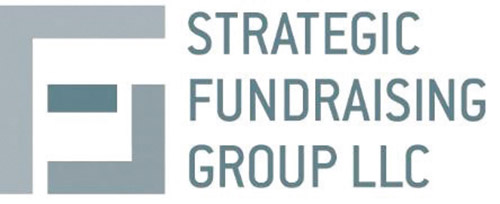
Every morning I hit the gym at 5:00 a.m. for several hours (yes; I am a gym shark), and over the years it taught me an important fundraising practice. Focus on what you are doing at all times. A gymnasium can, of course, be a place where many distractions take up space in your brain. Rent-free. If discipline applies to you, however, then you will quickly grasp this fundraising lesson.
A condition known as Numeric Palindrome Syndrome (NPS) hounds me when exercising. It’s not a video game with the same name. It’s a “disorder” invented by me to stay focused while doing my daily exercise. I don’t have a medical degree or a Ph.D after my name, but I believe I am qualified to diagnose this condition. And in an age when we are required to multitask, mastering this ailment is essential.
As a starting point, let me define a palindrome. It is a word, phrase, or sequence (including numerical order) that reads the same backward as forward. Classic palindromes include radar, kayak, madam, deed, and refer and there is a lengthy drawn-out list of these. Let your imagination run wild. My focus is on numerical sequences in my case.
Number palindromes might include 2112, 16461, 1001, 1111, 1221, 1331, 1441, 1551 – you get the idea. But there is more.
My NPS has also resulted in a mild obsession with historical events over the past century. During the War of 1812, for instance, the United States and its indigenous allies fought against the United Kingdom and its allies in British North America. Modern Hungarian national identity is centered on the Hungarian Revolution of 1848. The year 1919 is still being identified by the Black Sox scandal. It refers to a conspiracy to fix the 1919 World Series between the Chicago White Sox and Cincinnati Reds. No need to detail other years here, but there are others. These register in my subliminal consciousness as I do my workout routine.
My fixation on numerals while training is further nuanced by certain numbers and their permutations that have religious connotations in Judaism. As an example, 613 represents parts of each of the divine mitzvot (commandments) in the Torah; giving and receiving gifts in multiples of 18 also represents a favorable omen for life; 36 and 1818 represent multiples of Chai. You can appreciate where I am coming from.
In the gym, NPS and its side effects work like this.
Among various devices, I use a treadmill, an elliptical, a spin bike, and the stair stepper to work out. My attention is always focused on the computer screen that displays the time that has elapsed as I use each machine. A time display such as 12:21 might indicate that twelve minutes and twenty-one seconds have passed or the remaining time. These numbers are like mile markers on a highway or like guideposts on a hiking trail. On the apparatus, they tell me how long I have been on it or how much time I have left.
On that note, driving on a roadway is another time when we must pay attention to where we are heading. This includes heeding traffic and how long it will take to get there. Sounds familiar, doesn’t it? “Are we there yet?”
But let’s get back to my story.
Keeping your focus on a single task will help you accomplish it more quickly and efficiently. Maintaining a clear vision of your next destination or objective in the gym helps you stay on track. With a fundraising goal, the same is true.
Concentration also allows you to make better use of your resources. NPS teaches me to be disciplined about staying focused on my exercise regimen, which is a very important benefit. I utilize this approach not only in the gym but also in my fundraising efforts. Especially in the modern era of multitasking, it is essential. Yes, we must walk while chewing gum. The presence of Attention Deficit Disorder (ADD) at such times is not advantageous.
A fundraising team that spends most of their time on their phones or surfing the internet during work hours is unfocused on what they need to do to succeed. Whether coordinating an annual gala, handling a key solicitation or setting up a planned gift, staying focused is essential. Sometimes fundraisers lose sight of their “eyes on the prize.” This is when discipline, which is not always innate but can be learned, is needed.
The need for focus extends to a wide range of professions. Surgeons are an example. The last person you need in the operating room is a surgeon who cannot use a laser or a scalpel with precision. What about a contractor you hired to complete a construction project like getting into your house on time? How about a musician performing in a symphony? Someone not playing in harmony with the other musicians is the last thing the conductor wants to hear. To succeed in these and other occupations requiring exactitude, it is crucial to stay focused.
Fundraising is no different.
A final word. What works for me may not work for you. Despite that, if you are expected to raise a lot of money, and are seriously interested in succeeding, you need to find ways to stay focused.
Oh, and about hitting the gym at 5:00 a.m. to work out for two hours, that’s called “Meshuga Syndrome.” Glad to be of service.
Norman B. Gildin is the author of the popular book on nonprofit fundraising “Learn From My Experiences.” He is the President of Strategic Fundraising Group whose singular mission is to assist nonprofits to raise critical funds for their organization. His website is www.normangildin.com .










